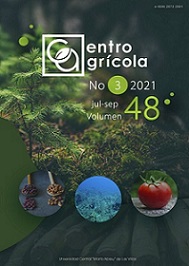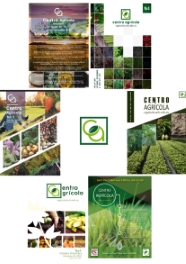CE: 1628 CF: cag06118
SCIENTIFIC ARTICLE
Effect of Gossypium hirsutum L. and Ricinus comunis L. meals in growth and yield of Brassica oleracea var. italica Plenck
Efecto de harinas de Gossypium hirsutum L. y Ricinus comunis L. sobre el crecimiento y rendimiento de Brassica oleracea var. italica Plenck
Juan Francisco Avendaño Mora1, Ligia Catalina Guerrero Cadena1, Luis Hidalgo Gallegos2 y Michel Leiva-Mora3
1 Centro de trabajo: Vivero Madre Tierra. Riobamba, Chimborazo, Ecuador
2 Escuela Superior Politécnica de Chimborazo (ESPOCH), Departamento de Horticultura, Facultad de Recursos Naturales, Riobamba, Chimborazo, Ecuador.
3 Escuela Superior Politécnica de Chimborazo (ESPOCH), Laboratorio de Fitopatología, Facultad de Recursos Naturales, Riobamba, Chimborazo, Ecuador
E-mail: This email address is being protected from spambots. You need JavaScript enabled to view it.; This email address is being protected from spambots. You need JavaScript enabled to view it.
ABSTRACT
Cultivation of broccoli in Equador uses high doses of inorganic nitrogen fertilizers, which cause problems in the soil, the environment and the crop yield itself. In this work organic amendments were applied to Haplustolls soil by implementing the following trial treatments: castor bean meal (270 kg N ha-1, 202.5 kg N ha-1, 152 kg N ha-1), cotton seed meal (270 kg N ha-1, 202.5 kg N ha-1, 152 kg N ha-1), and control without organic fertilization. Results confirmed that applications of organic meals made from cotton seed and castor bean had a favorable effect on growth and yield of Broccoli in the canton Riobamba, Chimborazo province, Ecuador. Result gets into the hands of broccoli farmers give new alternatives of organic fertilization to restore physical, chemical and biological properties of the soil and will increase crop yields and help environmental preservation.





